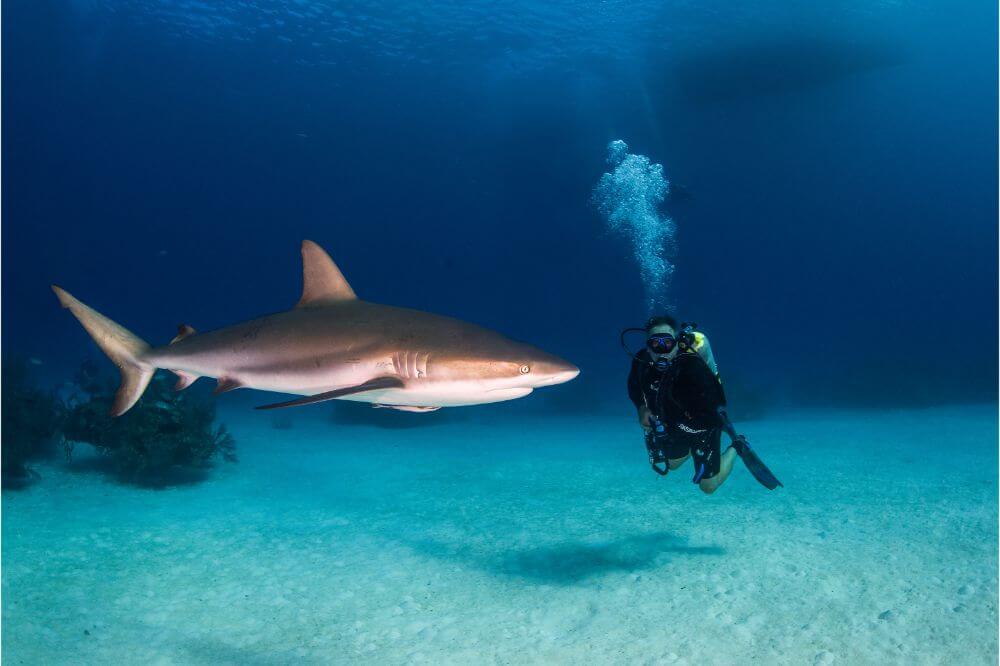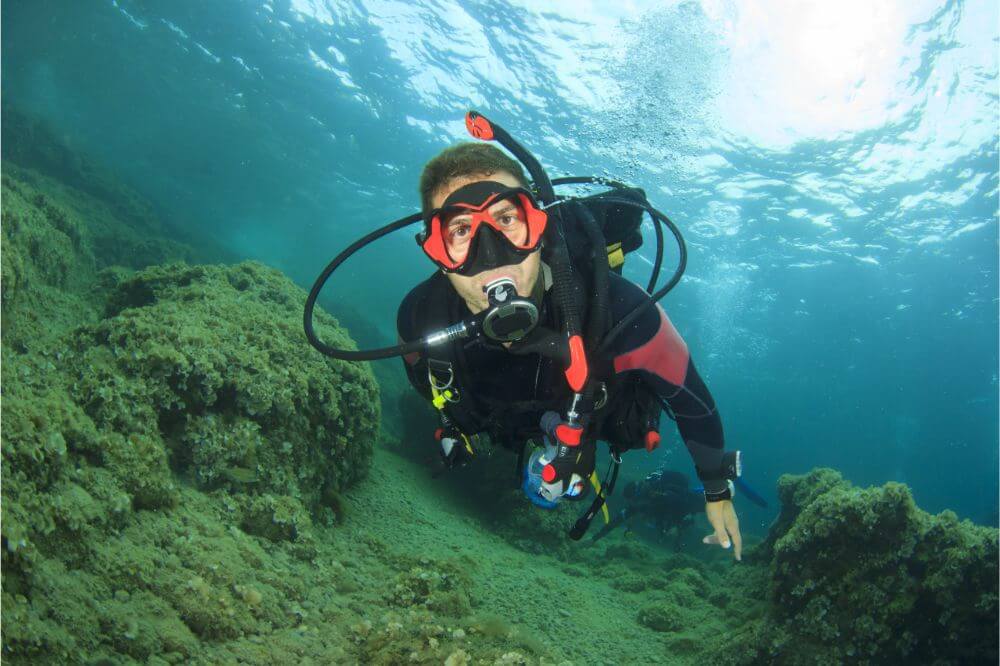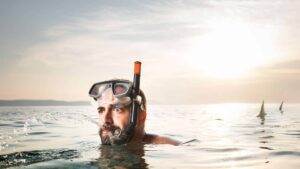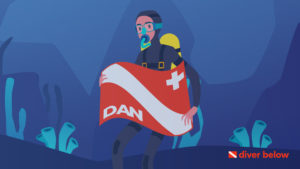Scuba diving requires so much training and instruction beforehand to educate new divers about handling problems and stress underwater.
Panicking is the single most dangerous thing a diver can do, so divers are trained extensively on how to remain calm and respond appropriately to unexpected situations.
Let’s take a closer look at how to deal with a panicked diver.
Contents
What are the Dangers of Panicking During a Scuba Dive?
Panic is one of the most dangerous aspects of scuba diving.
Among divers who officially drowned while diving, 20% would have survived had they not panicked, and another 23% of deaths had panic as a contributing factor.
Divers experiencing a panic attack typically have these symptoms:
- Rapid breathing or a feeling that you can’t breathe properly
- Fast or irregular heart rate, or a sense of heaviness in the chest
- Stomach distress, including nervousness, nausea, or vomiting
- Muscle tension or tremors
- Mood distress, including anxiety or irritability
- Sweating or chills
Panicked scuba divers often have irregular breathing, which is visible to other divers in their air bubbles.
They may have ‘tunnel vision,’ making it difficult for them to see or find their guideline.
Their movements may be jerky, or they may exhibit odd behavior.
Most scuba divers who feel intense fear or panic experience a ‘fight-or-flight response, so they attempt an uncontrolled ascent.
Depending on their depth, a rapid or unchecked ascent poses a high risk of decompression sickness or other problems.
However, perhaps because most panicking divers are new or inexperienced and not in deep water, among the 15% of panicked divers who perform an uncontrolled ascent, statistics show that only 5% of those divers reported decompression sickness.
When diving, not only is it essential to monitor your own well-being and feelings of fear or panic but also to your dive buddy so you can spot signs of potential panic in them as well.
Who is Most at Risk of Panic Attacks While Scuba Diving?
A panic attack can affect any diver, but there are several risk factors worth keeping in mind:
Prior Non-Scuba Panic Attacks
Statistically, people most at risk of a panic attack during diving have a history of panic attacks in general.
This makes a panic attack during scuba diving twice as likely.
In fact, for many years, a history of panic attacks was considered a medical condition that made a person unfit for scuba diving.
However, in 2001, the guidelines were amended to specify ‘untreated panic attacks’ because successful treatment lowers the risk.
Scuba Experience
Among people who experience a panic attack during a scuba dive, it’s most common on the first dive after their initial certification training.
Most divers who have experienced a panic attack have attained their initial open water certification.
However, there may not be a correlation since open water certification is the most common certification overall.
Gender
Among people with a prior history of panic attacks, women are more likely than men (37% vs. 24%) to experience a panic attack during scuba diving.
However, when experiencing a panic attack, women are less likely to perceive the danger as life-threatening and more likely to accept help.
While scuba diving, men are significantly more likely to experience panic as more severe and life-threatening and are less likely to accept assistance.
The good news is that the vast majority of scuba-related panic attacks do not have long-term harmful effects.
In fact, even when panicking, over 77% of divers remember their training and respond appropriately.
As mentioned above, only 15% perform an uncontrolled ascent, and only 5% of those divers reported decompression problems.
Panicked diving can be fatal, but that is a very, very rare outcome.

How to Avoid Scuba Diver Panic
The truth is, panic attacks and anxiety are extremely common during scuba diving.
Over 50% of divers report having at least one episode of panic or near-panic while diving and the vast majority of those divers remember their training, stay calm, recover safely, and go on to enjoy scuba diving for many years.
Not only is it possible to recover safely from a panic attack, but it’s also possible to reduce and sometimes avoid them altogether.
Here are the best ways to prevent scuba-related panic attacks:
Seek Therapy
Treatment is critical for people with a history of panic attacks who want to enjoy scuba diving.
Therapy can also be an excellent preventive treatment for people who are simply worried about experiencing panic attacks with no prior history.
Cognitive-behavioral therapy is highly effective at teaching a range of skills and exercises to help you remain calm and in control when you feel fear, and you can use these skills underwater (or anywhere else in life).
Don’t Be Afraid to Cancel Your Dive
Many divers who experienced a panic attack claim that they knew they should have skipped that dive.
Their mood wasn’t good, they were using unfamiliar equipment, the weather wasn’t nice, they already weren’t feeling well.
In many cases, a feeling of peer pressure or lost costs makes people think they need to dive when they aren’t feeling right.
You can decide not to dive at any time, for any reason, and can expect the support and understanding of other divers. If it’s not the right moment, don’t do it.
Stick to Your Training and Understand the Brief
Scuba divers are more prone to panic attacks when diving in unfamiliar equipment, unfamiliar waters, or when diving outside of their training and experience level.
Therefore, for scuba diving to remain fun, stay within your comfort zone and pay close attention to the dive briefings.
That way, you know what to expect from the dive and are already trained to handle the situation.
Conclusion
Panicked scuba divers are at risk of making bad decisions, but panic can almost always be reduced and overcome with proper training. Most scuba divers have nothing to fear but fear itself.





